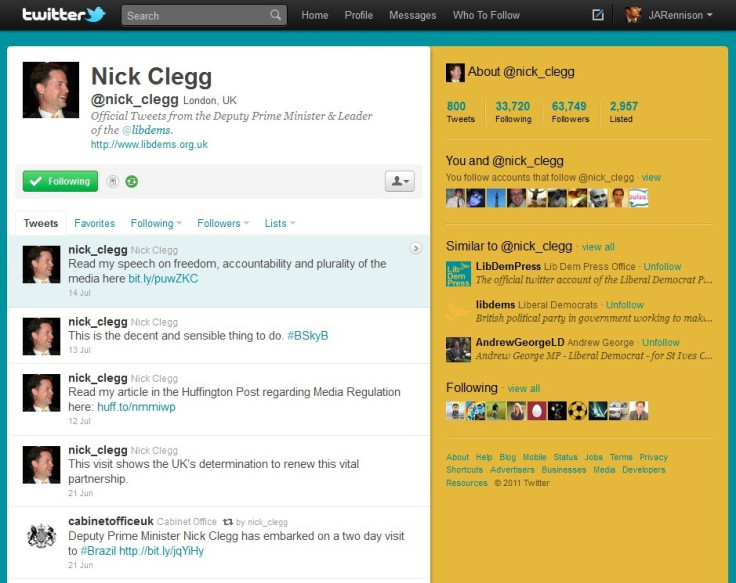Politicians! Step Away From the Twitter Account

When are politicians going to learn that nothing good ever comes from their being on Twitter?
After Diane Abbott's controversial tweets about race a few weeks back it is now her fellow Labour MP Tom Watson, who has found himself apologising for something appearing on his Twitter page.
Watson's Twitter account was apparently commandeered by his intern who felt the need to tweet "I should log out of my twitter so that my intern doesn't twit-rape me..." before apologising for her "terrible mistake". Watson also apologised for the questionable remarks.
Abbott also apologised for her "white people love playing divide and rule" comment and was apparently told that if she did not she would no longer be allowed to hold the hallowed post of Shadow Minister for Public Health.
Lesser politicians are not treated so leniently. Last year for example, Tory councillor James Malliff was suspended by his party for making unfavourable comments about homosexual marriage.
In the Labour Party meanwhile, comments expressing glee at the thought of the demise of Britain's most beloved post-war prime minister can expect a reprimand at the very least.
So clearly politicians are risking their reputations and possibly even their careers when they take to their Twitter accounts. But what do they gain?
Not much would appear to be the answer. There are the "followers" of course: Ed Miliband has 123,000, Nick Clegg 74,000 and the Conservative Party (David Cameron does not bother with Twitter) has 58,000; but it seems likely that anyone dorky enough to be a follower of Miliband, Clegg or the Tory Party is the kind of person who would vote for their chosen party no matter how badly it discredits itself.
Certainly there is nothing going on these Twitter pages that is likely to inspire someone to change their mind, as the below examples demonstrate.
Here is a snippet from Ed Miliband: "I have written to the Prime Minister over his inaccurate claims today in PMQs"
Nick Clegg in non-stop drivel mode: "Today, I proudly announced a big step in ending the 'who you know, not what you know' culture"
The Party of the Dear Leader: "David Cameron has announced measures to free small and medium enterprises from health and safety red tape"
And finally David Miliband, the most overrated politician in Britain, tells us what gets him up in the morning: "Looking fwd to meeting with @cclrstevereed and other Lambeth cllrs to discuss exciting co-operative council plans"
Is there anyone with even half a brain likely to develop a new political allegiance as a result of the inane drivel and dull propaganda that pours like a flood onto the Twittersphere? Does anyone think that Ed Miliband has a better chance of becoming Prime Minister because he has more Twitter followers than his main rivals?
Of course not, so why bother? As a political tool Twitter promises no advantages or victories but it does offer setbacks and embarrassment. Note that the only Ed Miliband tweet anyone remembers is his "Blackbusters" goof up following the death of Bob Holness.
To say Twitter represents the Stalingrad of political battlegrounds would be an overstatement, but it might not be unreasonable to describe it as its Hougoumont.
© Copyright IBTimes 2024. All rights reserved.





